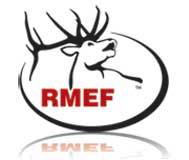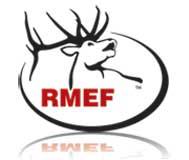
 Grants totaling over $200,000 have been awarded, by the Rocky Mountain Elk Foundation, to fund 15 conservation projects. The projects will directly impact 8,760 of vital Elk habitat across Washington Counties, and range from prescribed burning and noxious weed treatments to forest restoration.
Grants totaling over $200,000 have been awarded, by the Rocky Mountain Elk Foundation, to fund 15 conservation projects. The projects will directly impact 8,760 of vital Elk habitat across Washington Counties, and range from prescribed burning and noxious weed treatments to forest restoration.
MISSOULA, Mont.—From prescribed burning and noxious weed treatments to forest restoration, the Rocky Mountain Elk Foundation awarded grants that will fund 15 conservation projects benefitting 8,760 acres of vital elk habitat in Washington.
The grants total $212,692 and directly impact 8,760 acres across Asotin, Chelan, Columbia, Cowlitz, Garfield, Kittitas, Klickitat, Okanogan, Pend Oreille, Skamania, Stevens and Yakima Counties.
“These projects will help improve elk habitat in areas where encroaching weeds and forest overgrowth have a detrimental effect on wildlife,” said David Allen, RMEF president and CEO. “We are also providing funds for research regarding forage availability for elk and other wildlife near Mount St. Helens.”
Allen thanked RMEF volunteers for their hard work and dedication in raising funds for projects in Washington. He also thanked volunteers around the country for seeking to further RMEF’s mission of ensuring the future of elk and elk country.
Since 1985, RMEF and its partners have completed 551 conservation and hunting heritage outreach projects in Washington with a combined value of more than $112.3 million. These projects have protected or enhanced 453,854 acres of habitat and have opened or secured public access to 118,756 acres.
Here is a sampling of Washington’s 2015 projects, listed by county:
Garfield County—Burn 2,685 acres within the broader Asotin Creek Prescribed Fire Project area to restore native grasslands and improve wildlife forage. To ensure the establishment of native grasses, 435 acres will be aerially seeded after the burn on a landscape that is a summer, winter and calving area for elk as well as bighorn sheep range.
Skamania County—Provide funding for continuing research to address the interaction of forage availability and nutritional quality on the elk population within the Mt. St. Helens eruption blast zone on the Gifford Pinchot National Forest compared to state and federal land outside the zone. The results provide a foundation for evaluating forest management, predicting future habitat condition trends and a basis for elk population management in the area.
Yakima County—Seed 820 acres with grasses, forbes and sagebrush to restore habitat for elk and other wildlife within the Cottonwood 2 Wildfire area that burned nearly 9,000 acres of winter range in 2014 (also affects Kittitas County).
For a complete list of Washington’s projects, go here.
Partners for the Washington projects include the Colville, Gifford Pinchot and Umatilla National Forests, Washington Department of Fish and Wildlife, private landowners and various sportsmen, wildlife, civic, and government organizations.
|
About the Rocky Mountain Elk Foundation: Founded over 30 years ago, fueled by hunters and a membership of more than 205,000 strong, RMEF has conserved more than 6.6 million acres for elk and other wildlife. RMEF also works to open and improve public access, fund and advocate for science-based resource management, and ensure the future of America’s hunting heritage. Discover why “Hunting Is Conservation™” at www.rmef.org or 800-CALL ELK. |


